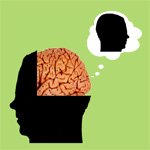In t he war of ideas, the philosophy of personal identity is gradually giving way to the science of human motivation. As we come to a fuller understanding of how and why we tick, from neurological, evolutionary, and ethological perspectives, the puzzles of personal identity that have perplexed thinkers since Locke’s day become less puzzling. In this journey from paradox to plain understanding, perhaps the most important single step is to abandon the idea that anticipation of experience is rationally required.
he war of ideas, the philosophy of personal identity is gradually giving way to the science of human motivation. As we come to a fuller understanding of how and why we tick, from neurological, evolutionary, and ethological perspectives, the puzzles of personal identity that have perplexed thinkers since Locke’s day become less puzzling. In this journey from paradox to plain understanding, perhaps the most important single step is to abandon the idea that anticipation of experience is rationally required.
Giving up that idea is like giving up geocentrism—the belief that motion is defined with reference to the unmoving earth. When people started to see the earth as just another moving object, man was displaced from the centre of the universe. Many were unsettled and alarmed by this idea. Those with a vested interest in the status quo actively suppressed the Copernican revolution. But the idea has proven itself. We now find it liberating and empowering, no longer a threat. It has given us a better understanding of the real world, and has helped enable useful technologies.
Giving up the idea that one’s relationship to oneself is privileged—that self-interested action is sanctioned by a special class of prudential reasons which have no application to one’s actions on behalf of other people—boots the self from its central position in the rational arena. When we see how things are, that anticipation of future experience is just something we do—not justified by any special relation between us and our future selves, because the relations we have to our future selves are the same kinds of relations we have to other people—then our strongly-motivating self-concern no longer has the whip hand. We can take charge of our own motivation. Continue reading “On Sympathy”









